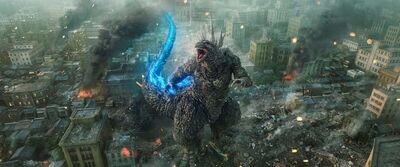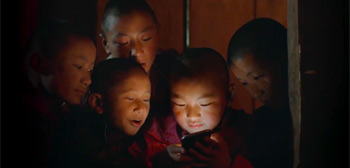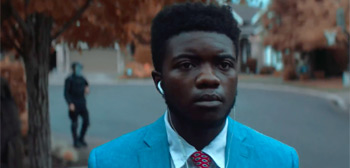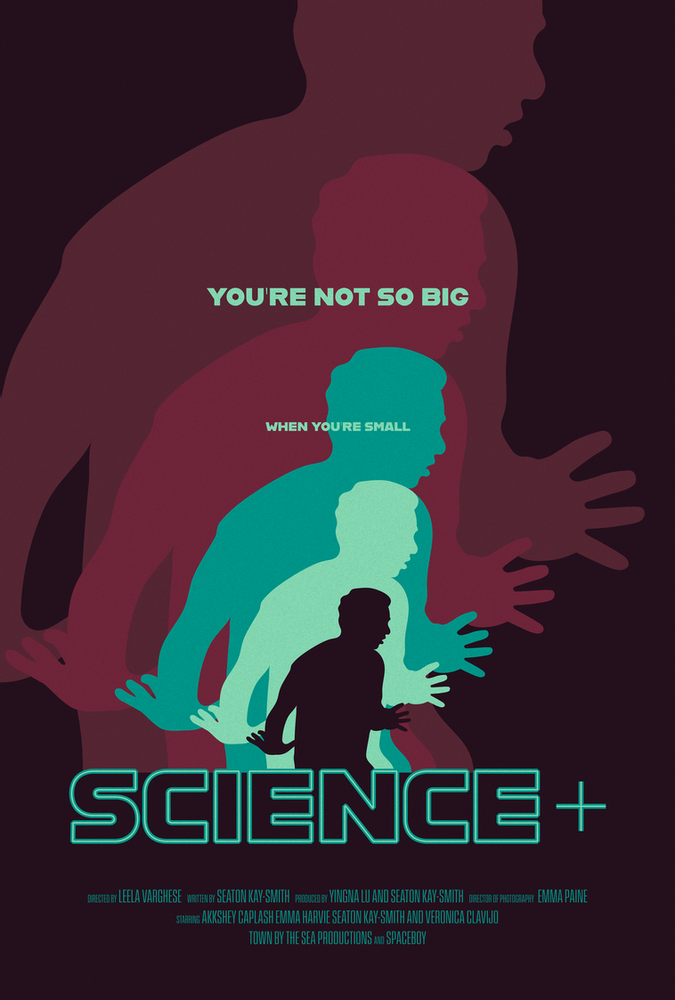Sundance 2021: Interview With Director And Writer Kate Tsang Of MARVELOUS AND THE BLACK HOLE
Creating a narrative that weaves together pieces of her own childhood life, Kate Tsang has crafted a striking directorial debut in Marvelous and the Black Hole. The film is a tender examination of how beautifully difficult it can be to find hope in times of darkness and features wonderful performances from a standout cast. Tsang spoke with Film Inquiry about the film, which is set to make its premiere at the 2021 edition of the Sundance Film Festival.
Wilson Kwong for Film Inquiry: I know that the film is based on some of your own personal experiences, but it’s also not completely autobiographical. Can you talk about how you decided what parts of your life to include, and what parts to change?
Kate Tsang: I wanted to make something for my younger self because my parents had gotten divorced when I was young. It was this life-changing experience that led me into a depression and feeling really isolated. And during this time, my grandfather came over from Hong Kong. I was bouncing between my mom’s house in Northern California and my dad’s house in Hong Kong. It was very disorienting and my grandpa could see that I was struggling. He reached out to me, saw me for what I was, didn’t judge me, and basically became the lifeline I needed; he became my best friend.
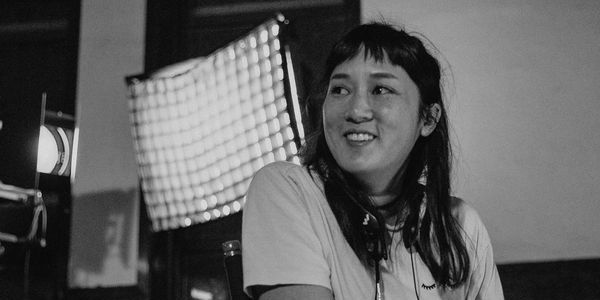
At night, he would tell me stories to help me sleep. I later realized that these fairytales that he was telling me were actually his own experiences with the Japanese occupation of Hong Kong that he transformed into stories that were really beautiful and uplifting. This is the same lesson that Margot (Rhea Perlman) teaches Sammy (Miya Cech) in the film. When I started with the script, the core relationship in it was inspired by my relationship with my grandfather. And I didn’t experience a parental death, but in a way, I did experience the death of my family as I knew it.
Was there any point during the creative process where you thought about basing everything on your own family?
Kate Tsang: I would say because my favourites movies are ones that have fantastical characters in a grounded setting – like Totoro or Edward Scissorhands – I wanted to make something with that kind of spirit. I wanted it slightly heightened, which is why I picked magic. The reason why I didn’t just make it about my grandpa was because I wanted to see a woman magician. Magic is also important to this film because it’s about making the impossible possible. And specifically for Sammy getting over her mom’s death, which seems like an impossible task. It’s only through working with Margo and performing these tiny miracles of magic every day that it opens her up to this possibility and to wonder again.
How was it making the jump from short films to your first feature film?
Kate Tsang: I can start all the way back to how I found my way into filmmaking. Growing up and bouncing back and forth between Hong Kong and the US, I grew up speaking English. But when I went to Hong Kong, where people only spoke Cantonese, I forgot all my English when I came back to the US. I felt like there was a language barrier in both places that I lived in, so I started relying more on drawing as a means to communicate. That led to my love of studio arts, animation, and filmmaking. I went to NYU to study and made a couple of short films, and all of them had elements of animation mixed with live-action. They usually featured a young person at the cusp of change, so I knew that I was going to be equipped to make a feature film like this. But writing and filming a feature is a daunting task. I knew that in approaching it, it had to be something really important, and something I really needed to say. Making this film based on such an important relationship in my life, and the message of trying to find joy and hope in the dark, and trying to transform your pain into something beautiful or powerful, those are the things that kept me going for the years it took to make this film.
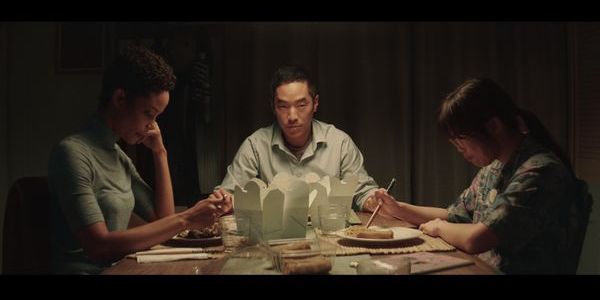
In your press notes, you also mentioned that you’re interested in characters who are caught in the ‘in-between’. Can you elaborate on that?
Kate Tsang: I’ve always been drawn to the supernatural and paranormal films because monsters and ghosts are caught between the worlds, and teenagers are constantly caught between adulthood and childhood. I feel this push and pull very much as an Asian-American. At times, I don’t feel like I completely fit in here in the U.S. And when I go back home to Hong Kong, I also feel very much like I’m not there. I feel very much caught ‘in-between’.
How does having roots in Hong Kong, which has such a strong cinematic history, inform you as a filmmaker?
Kate Tsang: This film actually has pretty clear elements of things that influenced me while I was growing up in Hong Kong. I remember watching a lot of really amazing animation from Japan while I was growing up, and at night, they would show really incredible Wuxia films starting around 11pm. I remember staying up to watch those and they would blow my mind. They also showed Dragonball Z a lot, so I pay homage to my love for those kinds of experiences through Sammy’s fantasy sequences in my own film.
What’s really striking is that the film features a lot of Asian-American characters and is a story about their experiences in America, but the story is such that any characters (not necessarily Asian) could have been used.
Kate Tsang: Well, the film was always conceived with an Asian-American family in mind because it’s the film I wish I had when I was a kid. It’s like when I was watching E.T. or Edwards Scissorhands; I love those films and they made me feel less alone and made me laugh, but they never had somebody that looked like me in them. So it was always conceived with this Chinese-American family in mind. But this film is about grief and getting through a really difficult, painful thing in your life. And I’m not interested in stories where the conflict comes from being Asian-American. I’m interested in stories where the characters are Asian-American, and that informs how they live, but they have bigger dreams. Her dad wants to be a good father. Her sister wants to be a warrior princess and Sammy ultimately want to be a magician.
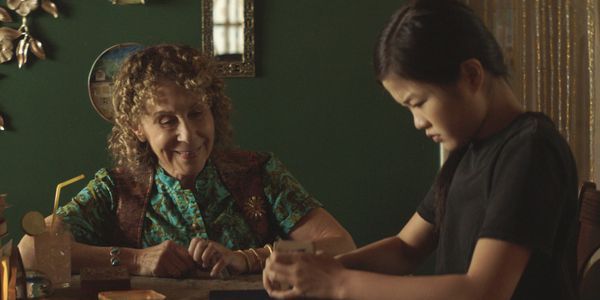
Did you have a favourite part about making this film?
Kate Tsang: I would say getting to watch Miya and Rhea‘s relationship develop throughout the filmmaking process was one of my favourites. We took them to magic shows together, and we also had them take magic lessons together. Watching them slowly get to know each other through magic was a really wonderful experience that mirrored their relationship in the film. As we kept shooting, it was clear that they had this bond that was really touching. Rhea‘s so sweet and warm and immediately welcomed Miya, and Miya‘s so loving as well. I think it was incredibly exciting to see.
And how was it working with such a big icon like Rhea Perlman?
Kate Tsang: It was incredible. She’s an incredible actor who also brings a lot of amazing ideas to the table. In many ways, she was a gift to me in this film. I remember sending the script to her and getting a response a day later. She’s someone who knows what they want and commits to it, and is incredibly thoughtful in what they do. So I couldn’t have asked for a better Margo, especially for a director making their first film. I couldn’t have asked for a more kind and talented actor to work with for that role.
Final question. Now that you’ve made films in the US, would you want to make a film in Hong Kong?
Kate Tsang: Oh my, I would love to make a film based on the Kowloon Walled City in Hong Kong!
That would be really, really awesome.
Film Inquiry would like to thank Kate Tsang for taking the time to speak with us!
Does content like this matter to you?
Become a Member and support film journalism. Unlock access to all of Film Inquiry`s great articles. Join a community of like-minded readers who are passionate about cinema – get access to our private members Network, give back to independent filmmakers, and more.
Join now!
